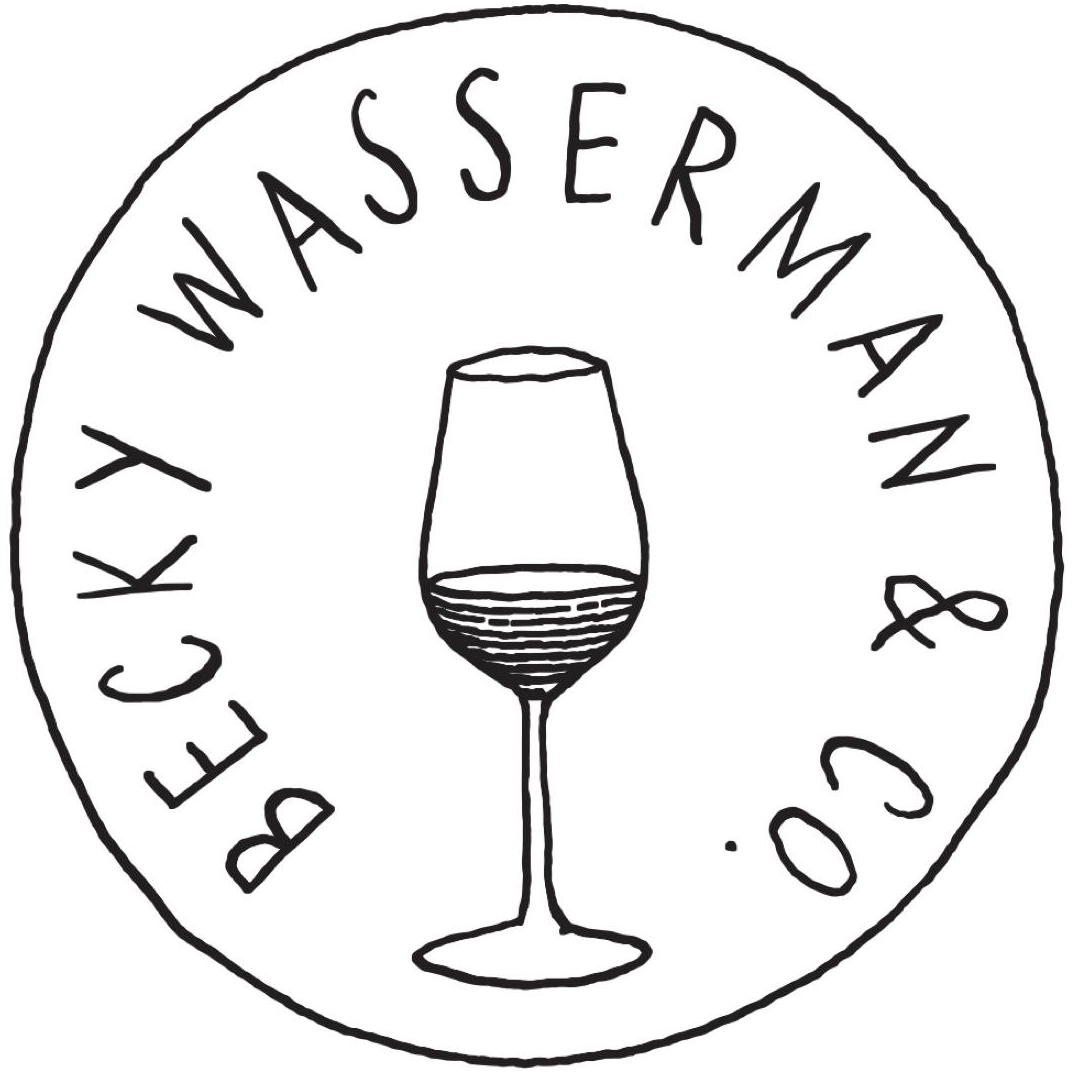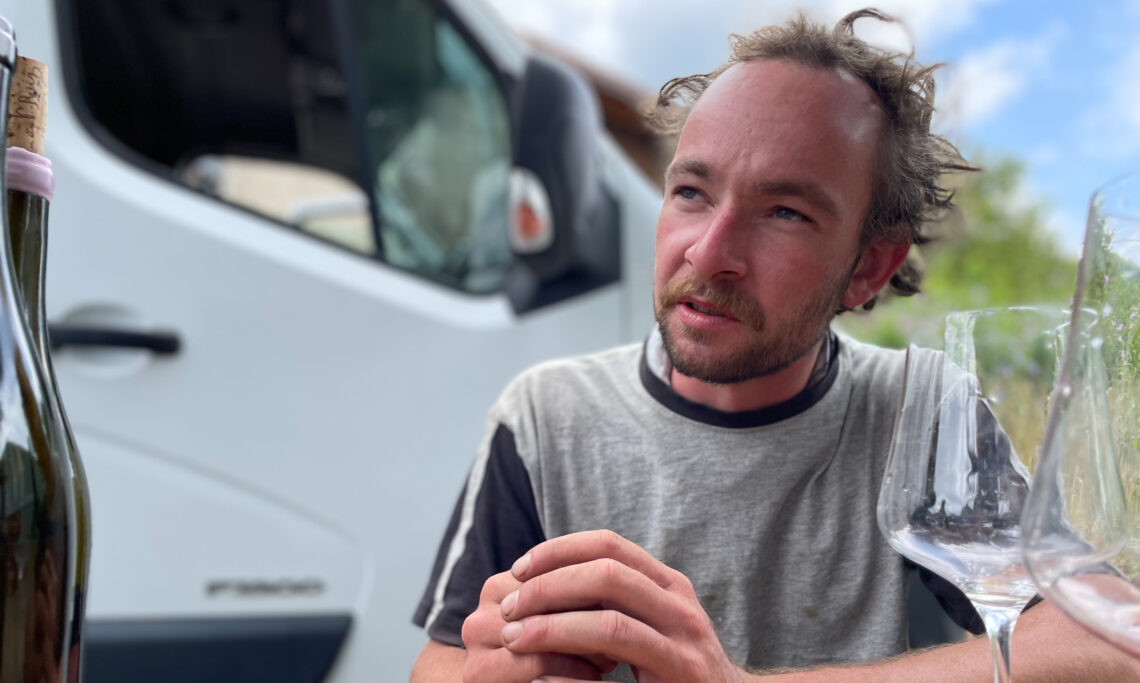Domaine Profile
- Location: Grapes from Ardèche, Rhône. Wine made in Ayze, Savoie.
- Varieties: Syrah, Grenache Noir
- Viticulture: Purchased grapes, organic (certified or in official conversion)
- Vinification: Manually harvested, 100% whole cluster, ambient yeast fermentation, no punch-downs or pump-overs, pressed with a vertical press, aged in stainless steel tanks, minimal added SO2, less than 15 ppm total at bottling.
Vincent Ruiz was born in Valence in the Rhône in 1995. In high school, he chose to specialize in literature, philosophy, and languages (Baccalauréat L), with the intention of attending film school. Instead, he studied water management and conservation, before changing from water to wine by pursuing Viticulture and Enology studies in Belleville, in the Beaujolais. He graduated in 2017.
What drew him to winemaking was chemistry, which had piqued his interest while studying water management. His great-uncle was also influential: “He is an engineer. He built the dams on the Rhône. He did well and had a large cellar full of old Chaves and Trollats.”
During his studies, Vincent’s main apprenticeship was at Domaine Coursodon in Saint-Joseph, after which he took a break to travel on foot throughout Turkey. Upon his return in 2018, he found a position working in the vineyards and cellars of Franck Balthazar in Cornas.
On the side, he began making a little wine with purchased organic grapes from Ardèche. “It was out of passion; it wasn’t a vital need, I had my job with Franck,” Vincent says. “My neighbor was a natural wine nut and he gave me a space to vinify.” In 2019, he founded his micro-négoce, Les Vins de Vincent, to formalize the experiment and produce wine in commercial quantities.
Domaine du Gringet was founded in 2021 by Vincent, Franck, and wine brokers Miguel Sarzier and Raphaël Bennour, to take over the vineyards of the late Dominique Belluard in Savoie. A three-hour drive north of Vincent’s small winery, this could have spelled the end of his négoce, but the co-founders agreed that the terroirs from which he sourced his grapes were too special to let go.
The clay-limestone terroirs at ±400 meters elevation produce wines that are surprisingly crunchy and fresh, especially coming from Rhône varieties. This is due to remarkably low pHs. For the 2023 vintage, they were between 3.16 and 3.3, whereas in other parts of the Rhône, the pH’s for Syrah sometimes exceeded 4. In addition to the freshness they preserve, these pHs are ideal for wines with little (15 ppm total or less) or no added SO2.
Vincent’s wines are now vinified at Domaine du Gringet, where the grapes are brought in refrigerated trucks. Because of the refrigeration, the whole bunches are put into tanks at 5°C. The tanks are inerted with CO2 on the first day and loosely covered with tarps for an ambient yeast, semi-carbonic maceration without punch-downs or pump-overs that can last one to three weeks depending on the vintage and the variety. Vincent presses at a density between 1020 and 1030. The juice is then returned to the same tanks to finish fermenting and for aging. Racking depends on the vintage – yes, in 2022, as the vintage was very reductive; but none in 2023. The wines are bottled in June, with no added SO2.
Despite the natty protocol, Vincent’s wines are not glouglou. This is precisely why we find them special. In a sea of zero-zero reds that emphasize fruit with little else, Vincent’s wines have a rare combination of tangy fruit, mouth-watering brightness, and structure.
“I received my wine education in the Drôme and Ardèche,” Vincent says. “And what excites me with the reds is the use of whole bunches. I like what the stems bring: a spine that holds the wines together. They add a chewiness that is part of the wine’s skeleton. Every time I taste a destemmed wine, I find it lacking dimension, a part of its soul. It’s true, though, that whole clusters can create austerity. But after a little age this softens and really adds a precious extra dimension.”


